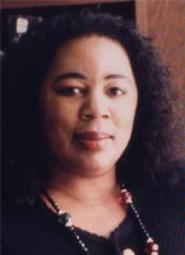
Distinguished author Harriet A. Washington delivered a lecture titled “Medical Apartheid: The Dark History of Medical Experimentation on Black Americans from Colonial Times to Present” at Hamilton on Feb. 19. Her book by the same name won the prestigious 2007 National Book Critics’ Circle Award and was named one of the year’s Best Books by Publishers’ Weekly. The well-attended lecture was sponsored by the Days-Massolo Center, Kirkland Endowment, Dean of Faculty, and the Women's Studies Department.
In her lecture, Washington chronicled the “hidden history” of medical experimentation on African Americans, a history she claims is often ignored by the modern medical community.
Washington began her talk by discussing the exploitation of black female slaves for surgical research, a practice prevalent throughout the South during the mid-19th century. She explained that many medical pioneers who doctors celebrate as “heroes” today were actually quite racist and abusive in their methods.
Illustrating her point with an extended example, Washington presented the story of gynecologist J. Marion Sims, a man who is praised for his contributions to the field despite his mistreatment of slave women as experimental subjects. “It says something about who we consider heroes,” said Washington.
Washington also recounted the “scientific racism” used to justify medical researchers’ mistreatment of blacks. She cited the historic myth that African Americans were “a different species” that could not feel pain, had lower intelligence levels, and experienced unique diseases and immunities.
Proceeding chronologically, Washington told the story of the U.S. Public Health Service’s infamous Tuskegee syphilis study, which was conducted for many decades throughout the mid-20th century. The study is well known as a blemish in medical research history for its exploitative method of observing the progression of syphilis in African American men. Instead of treating the patients, doctors allowed the disease to take its natural deadly course.
Washington further explained that the entire goal of the Tuskegee study was itself predicated on racist myths about African Americans. She said its purpose was to prove that while syphilis attacks both the neurological and muscle systems in white people, it would not affect African Americans in the same way because of their alleged “primitive” neurology.
While many might assume the medical exploitation of African Americans is a relic of the past, Washington concluded her talk with a discussion of the racism that exists in the field today.
For example, the author cited “racial disparities in the use of analgesic medication,” which are often justified by characterizing African Americans as “drug seekers.” Washington said the disparity illustrates the survival of the myth that black people feel less pain.
Washington also pointed to the fact that African American physicians and nurses have been historically marginalized, and evidence that people of color are still disproportionately used as research subjects in present day.
At the end of her lecture, Washington reinforced her point that discussions about the history of medicine must include this “hidden” narrative of African American medical exploitation. After all, “history and science are only as pure and objective as the people who practice them.”
